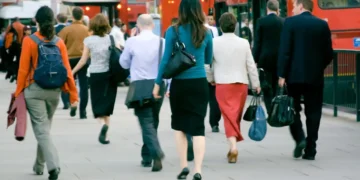The Suburban Economic Study commissioned by Regus revealed the environmental benefits that flexible workspaces in smaller towns and suburbs will have between now and 2029. What it found was that coworking spaces are an unlikely, but effective tool in the fight against climate change.
The study found that by 2029, flexible offices in these areas will reduce carbon emissions globally by the equivalent of 1,280 flights from London to New York each year due to reduced commute times. Furthermore, workers will save an average of 7,416 hours each year in reduced commute times, which is equal to 118 metric tonnes of carbon emissions.
The UAE Vision 2021 study on Sustainable Environment and Infrastructure also found that being environmentally friendly is a key national priority to create a balance between economic and social development.
“Flexible workspaces can contribute significantly to helping organizations in the UAE become more environmentally friendly by reducing carbon emissions produced by daily commuting,” said Kory W. Thompson, Country Head Middle East for IWG. “They allow every business and individual an opportunity to act responsibly towards their environment by reducing pollution.”
Not only do flexible workspaces benefit the environment, but they are also expected to contribute over $254 billion to local economies over the next decade. In fact, the study found that an average of 121 jobs are created in areas where flexible workspaces operate.



 Dr. Gleb Tsipursky – The Office Whisperer
Dr. Gleb Tsipursky – The Office Whisperer Nirit Cohen – WorkFutures
Nirit Cohen – WorkFutures Angela Howard – Culture Expert
Angela Howard – Culture Expert Drew Jones – Design & Innovation
Drew Jones – Design & Innovation Jonathan Price – CRE & Flex Expert
Jonathan Price – CRE & Flex Expert










